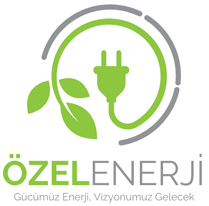What Are Smart Home Systems?
-1060x400w.jpg)
What Are Smart Home Systems?
Smart home systems are technologies that allow the various
devices and services in a home to be connected and managed via the internet.
These systems provide homeowners with comfort, security, energy savings, and
convenience. Here are the main smart home systems:
1. Smart Lighting: Smart bulbs and lighting systems
can be controlled via mobile apps or voice commands. For example, you can turn
lights on and off when you are not home to reduce the risk of burglary.
2. Smart Thermostats: These devices optimize your
home’s heating and cooling systems to save energy. Thermostats can adjust
themselves based on your usage habits and can be controlled remotely.
3. Smart Security Systems: Security devices such as
cameras, doorbells, alarm systems, and sensors monitor your home and send
instant notifications. Smart door locks can track who enters and exits your
home.
4. Smart Home Assistants: Digital assistants like
Amazon Alexa, Google Assistant, and Apple Siri allow you to interact with your
smart devices. You can control devices, get information, and perform various
tasks using voice commands.
5. Smart Appliances: Appliances like refrigerators,
ovens, washing machines, and vacuums can be controlled and monitored remotely
via internet connections. For example, a smart refrigerator can track the
expiration dates of the food inside.
6. Smart Curtains and Blinds: These systems can open
and close automatically based on daylight or operate according to a set
schedule. They enhance energy efficiency by reducing the load on heating or
cooling systems.
7. Smart Irrigation Systems: These systems monitor
the watering needs of your garden and make adjustments based on weather
conditions to save water. They automatically provide the necessary amount of
water to plants.
8. Smart Entertainment Systems: Televisions,
speakers, and other media devices can be integrated and managed through smart
home assistants and mobile apps. Home theater systems and music streaming
services fall into this category.
9. Energy Management Systems: These systems help you
save energy by monitoring and analyzing your home’s energy consumption. They
can provide recommendations for optimizing electricity use.
Smart home systems make your home safer, more comfortable,
and energy-efficient while enhancing your quality of life. As technology
advances, these systems will continue to evolve and become more widespread.
The Importance of Smart Home Systems
The importance of smart home systems stems from the various
advantages they offer in different areas. Here are the main reasons why smart
home systems are significant:
1. Security and Safety:
- Prevention of
Theft and Hazards: Smart security cameras, alarm systems, motion sensors, and
smart locks enhance security by monitoring your home 24/7. They detect dangers
like theft, fire, and gas leaks and send instant notifications.
- Remote Monitoring
and Control: You can monitor and control your home remotely. Even when you are
on vacation, you can see what’s happening at home.
2. Comfort and Convenience:
- Automation: Smart
home systems automate daily routines. For instance, lights can turn on and off
at specific times, or your morning coffee can be prepared automatically.
- Voice Commands
and Remote Access: With digital assistants, you can control home devices using
voice commands or mobile apps.
3. Energy Savings and Efficiency:
- Smart Thermostats
and Lighting: They optimize energy consumption to save costs. Smart thermostats
adjust home temperatures based on your habits.
- Energy Monitoring:
Energy management systems track how much energy each device uses, preventing
unnecessary consumption.
4. Economic Savings:
- Lower Energy
Bills: They reduce electricity and heating/cooling bills through energy
efficiency.
- Long-Term Value
Increase: Smart home systems can increase your home's value and offer
advantages during sales.
5. Eco-Friendliness:
- Reduced Energy
Consumption: They optimize energy use, reducing your carbon footprint.
- Water
Conservation: Smart irrigation systems ensure effective water usage, preventing
wastage.
6. Health and Well-Being:
- Indoor Air
Quality: Smart air purifiers and humidifiers monitor and improve indoor air
quality, benefiting your health.
- Smart Lighting:
Lighting systems that adjust according to daylight can improve your sleep
patterns by working in harmony with your biological clock.
7. Entertainment and Connected Living:
- Smart
Entertainment Systems: Home theater systems, music streaming services, and
other media devices offer a richer entertainment experience.
- Connected Devices:
The interconnected operation of various devices enhances the quality of life.
Smart home systems provide significant advantages in many
aspects of modern life, enhancing comfort, security, energy savings, and
overall quality of life. With the advancement of technology, the adoption of
these systems is expected to increase, offering more benefits.

3 Comment(s)
Villamıza akıllı ev sistemleri yaptırdık . İşin ehli bir firma sorunsuz bir şekilde teslim ettiler . Teşekkür ederiz
Villa projemizde çalıştık özel energy ile süreci başından en sonuna kadar hassasiyetle takip ettiler. ABB marka ile çalışıyorlar üst seviye kalite.
İşini özenli yapan bir firma. Daha önce şarj istasyonu kurulumu yaptırdık.
Akıllı ev sistemi ve diğer hizmetleri için gönül rahatlığıyla tercih edilebilir.
Leave a Comment